
Eyes wide and wild with fear, the woman’s terror climaxed as the dead thing savagely impaled her eye on a shard of wood. Her screams were matched by the sound of roaring music culminating in a strident crescendo in the darkened Los Angeles theater. As the doomed woman’s fate was projected on screen, Italian composer, conductor, and musician Fabio Frizzi and his band performed the live score to the 1979 Lucio Fulci horror classic Zombie (a.k.a. Zombi 2, a.k.a. Zombie: Flesh Eaters). The Frizzi 2 Fulci Composer’s Cut of Zombie tour, which made its U.S. debut at the end of summer, conjured up images and sounds of the living fighting to survive amongst the dead who walk in disjointed rhythm on the island of Matul.
Back home in Rome, Italy, Frizzi spoke over video chat about his musical career and his celebrated collaboration with Fulci, a union rooted in the past as well as the present. “The relationship between the composer and the movie is very important, it’s very personal,” Frizzi said. “Lucio was one of the most important people to teach me the importance of this relationship.” Frizzi emphasized that Fulci was “a craftsman, and with him, I learned to be a craftsman, too.”
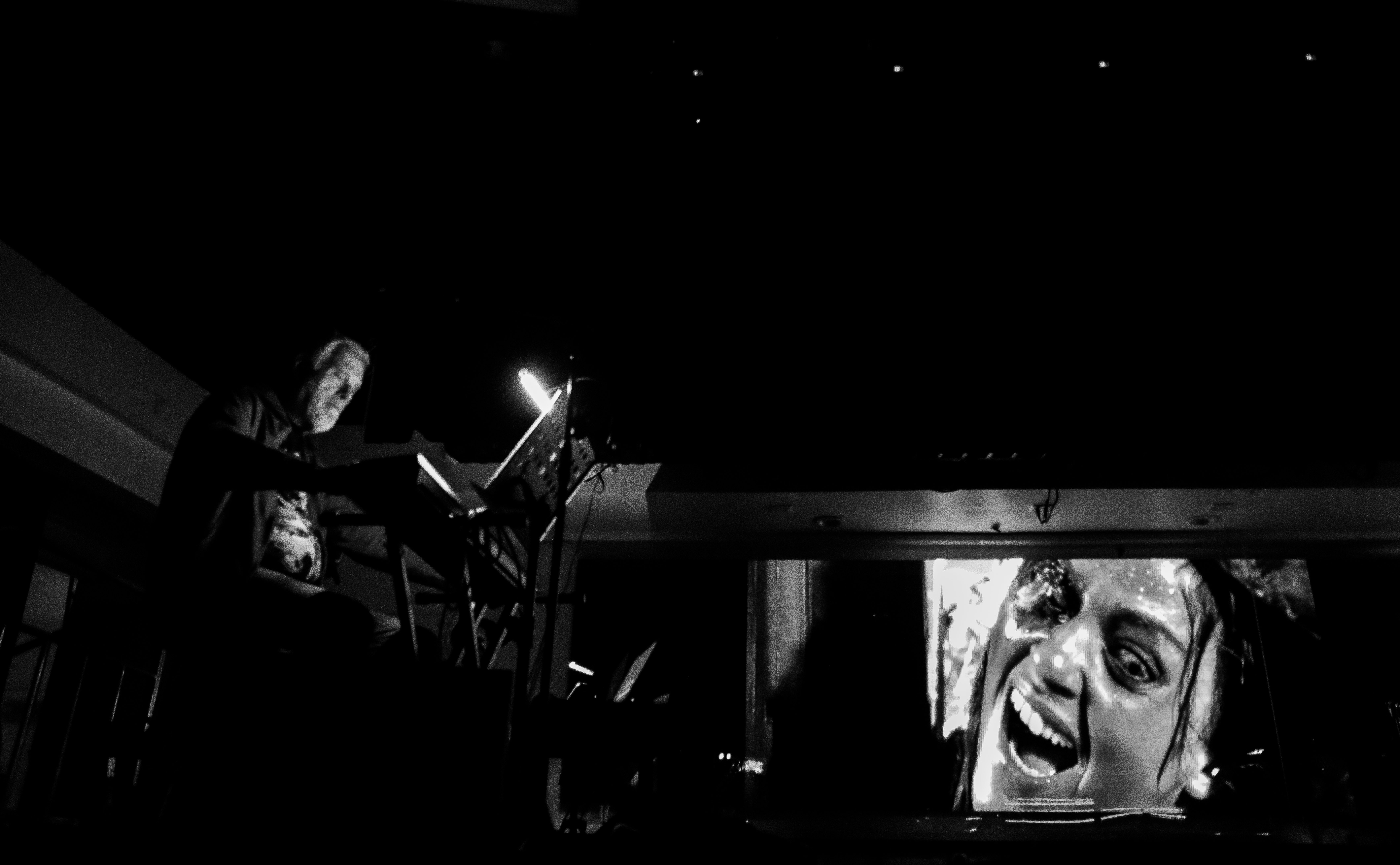
Frizzi’s craftsmanship is exemplified in a career spanning over five decades. His scores have traversed comedy, westerns, ballet, and horror genres, providing a rich tapestry of music interwoven with emotional and physical landscapes. From melodic lilting notes to the rhythmic percussion of impending doom, Frizzi’s scores reflect the complexity of human experience. Horror films, such as Fulci’s Zombie, encompass themes that go beyond the macabre and explore longing, love, and loss. Frizzi and Fulci’s imaginative collaboration, from their early years to the recent revival of their cinematic artistry, reflects feelings and experiences that reveal what it means to be alive (and undead).
“I find every time I see a new image in front of me with my piano, with my guitar,” Frizzi began, “I start to think for what I would like to create, to tell the story in a very personal way, metabolizing the meaning of moment after moment, true to those images.” The images that come to mind when speaking about his earliest memories of music are not of horrorscapes found in Fulci films, but those of family and togetherness.
Born in Bologna in 1951 and raised in Rome, Frizzi’s love of music began at an early age. He recalls his family singing together, their melodious voices a joyful remembrance of the past. “One of the things that I remember when I was very young, maybe 5 or 6 years old, is that I used to travel to the seaside from Rome with my family,” he recalled. “One of the things that we did when going to the sea was sing. Everybody loved to sing, in particular, my father Fulvio, who was in a choir when he was young. He had a beautiful voice and so did his sister, my Aunt Adriana who we called Bobo.” He added, “When you start listening and try to sing along, it’s something that you put in your heart and keep there.”
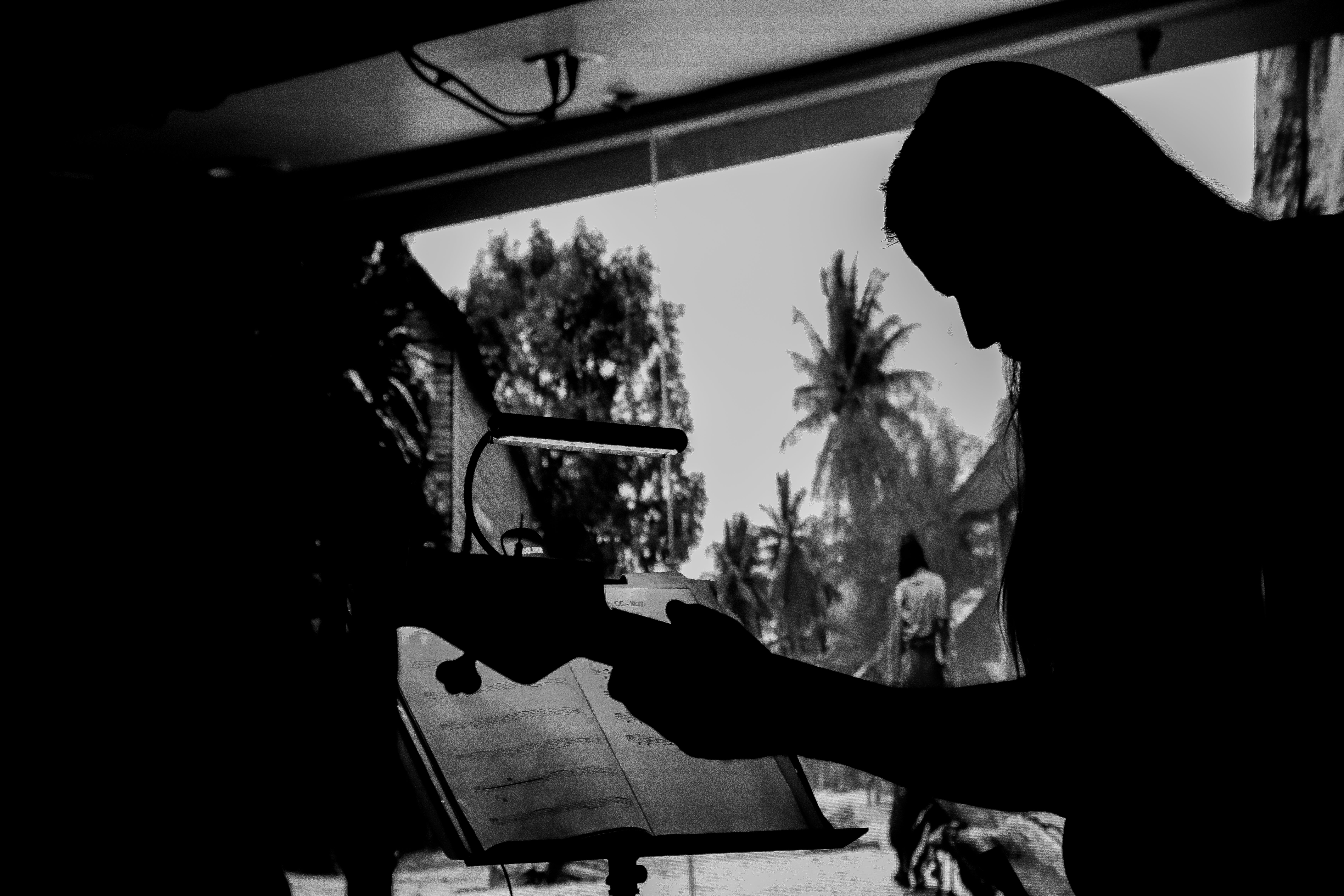
As a teenager, Frizzi began studying music. Initially taking up classical music (the Baroque period, a much-loved era), his interests expanded to pop and rock, among other genres. In adulthood, he went on to form the famous Bixio-Frizzi-Tempera band with Vince Tempera and Franco Bixio. “Those five years with the trio were so formative for me,” Frizzi said.
The trio composed music for comedies, westerns, and crime dramas. It was with his band that Frizzi first met Lucio Fulci. They composed film scores for Fulci including his 1977 giallo classic Seven Notes in Black (a.k.a. The Psychic). Frizzi fondly recalls his time with the trio, “They were fantastic years,” he said. Frizzi left the group to start a solo career and began his collaboration with Fulci, creating haunting scores for the director’s cinematic meditations on fear and the unknown intertwined with the supernatural.
“Lucio Fulci had an important presence in my life, he was a real maestro in movies,” Frizzi said. In addition to Zombie, Frizzi also wrote the scores to City of the Living Dead and The Beyond, among other memorable films. The two eventually lost touch, and in 1996 Fulci died at the age of 68, leaving behind a rich and much beloved cinematic legacy. But in the early 2000s, his films were resurrected by old and new fans alike.
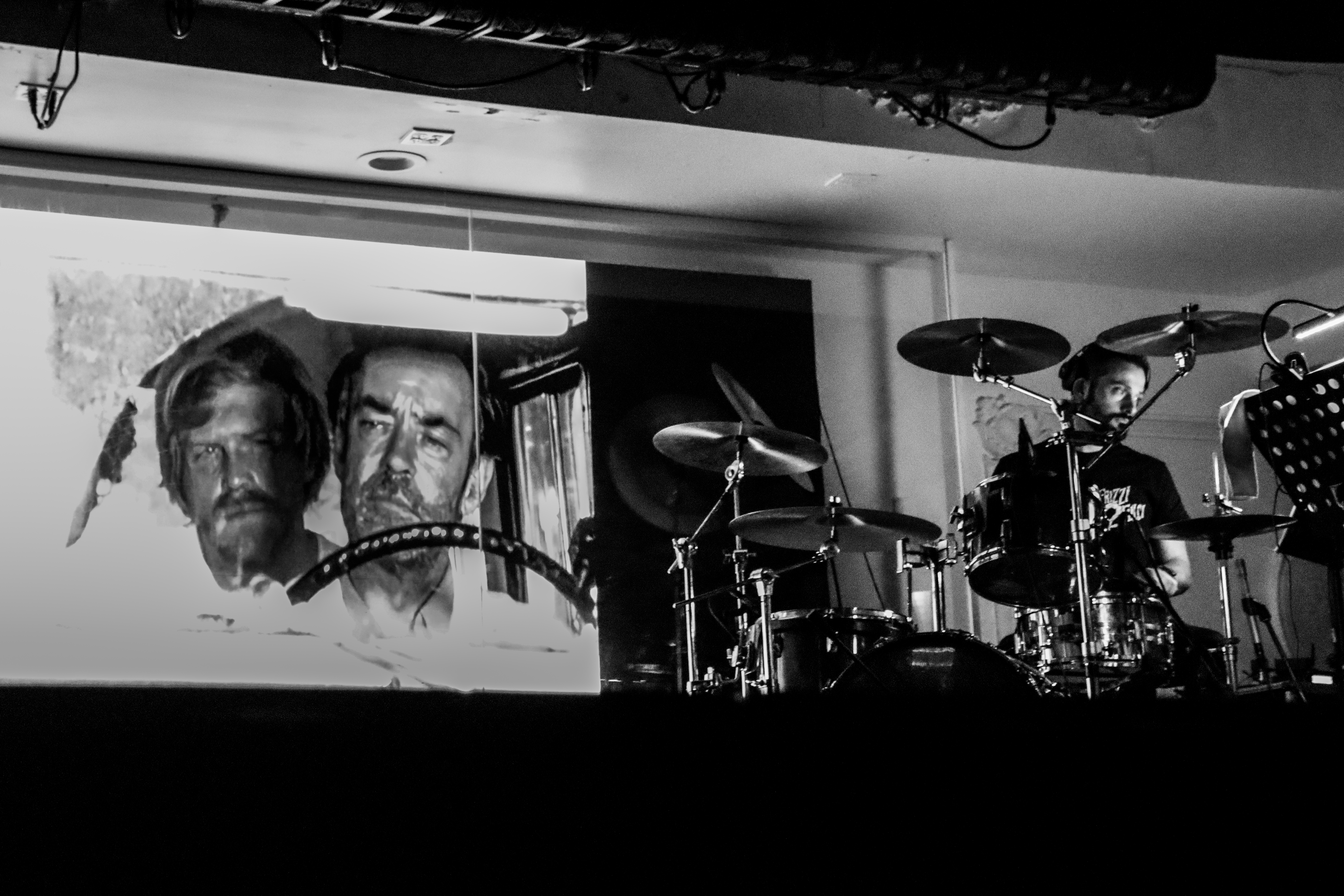
“When the internet arrived, everything changed and many beautiful movies that lived in my past came back to my life immediately,” Frizzi explained. He added, “I rediscovered a magical era of my work, the quality and importance of the collaboration with Fulci, and I decided to dedicate a tribute show to him.”
Frizzi 2 Fulci debuted in 2013 and was initially composed of mini-suites of the films they collaborated on. Frizzi and his band performed the first shows in Rome and then crossed the pond to London to perform at Union Chapel, a 19th-century Gothic revival church, an apt setting for the resurrection of the composer and late director’s body of work. Performing on Halloween night, Frizzi recalled, “We had a blast. There were so many people I couldn’t believe it!” In 2017, Frizzi 2 Fulci toured with the Composer’s Cut of The Beyond and just this year, they completed their first U.S. tour of Zombie.
The Composer’s Cut of Zombie unites Frizzi and Fulci’s unyielding craftsmanship. In the Los Angeles theater, the union of moving pictures and music transformed the cinematic space into a time-warp, collapsing the distance between the 45 years since the film’s release and the here and now.
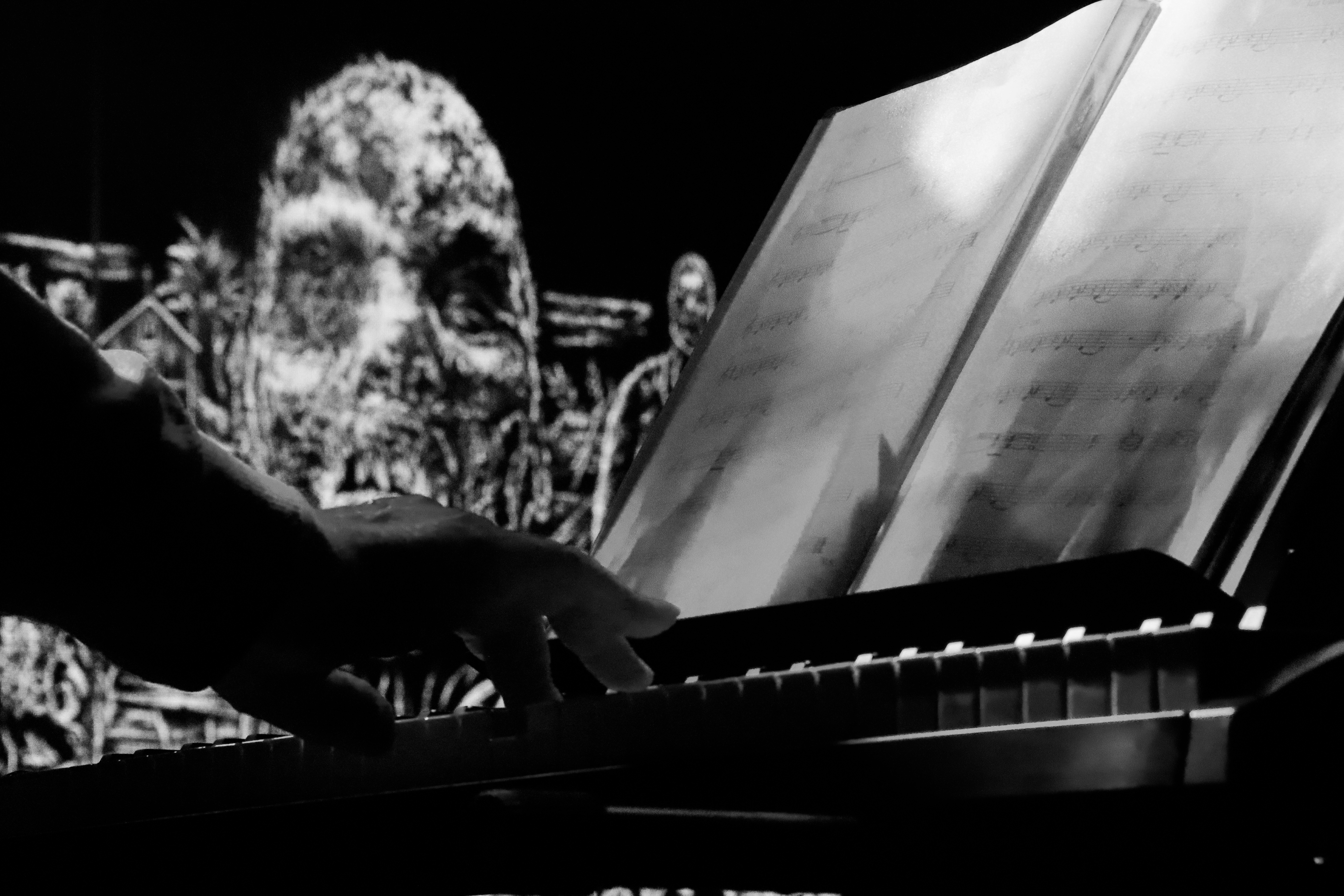
The performance featured Frizzi’s original melodic and haunting score with newly composed tracks intertwining the images of the undead on screen with a musical performance that at once unnerves and soothes in the face of an impending zombie apocalypse. The sounds emanating from the musical instruments on stage move seamlessly from soothing to grating, reflecting and enhancing the story on screen, whether it’s a scene of ocular violence, a zombie-shark tussle, or conquistadors rising from their graves.
Zombie reveals a multitude of emotions. Terror and violence are paramount in the film, but so are love and longing which are eclipsed by the horrors of the undead. The catalyst for the film is not the dead coming back to life—it’s a daughter’s love and longing for her missing father that propels her to go to the doomed island of Matul. Ultimately, Frizzi and Fulci’s collaboration transgresses the emotional and physical landscapes of our hopes, dreams, and nightmares.
Fulci famously said, “Violence is Italian art”. But so perhaps is love, longing, and remembrance. Frizzi and Fulci’s cinematic collaboration in all its resurrected forms continues to conjure up new experiences and interpretations of the films. “Music is like a magic potion,” Frizzi said. “As a composer you realize that if you truly believe in a project, you can, within certain limits, change the destiny of that film, bringing out new meanings and use of emotions.”
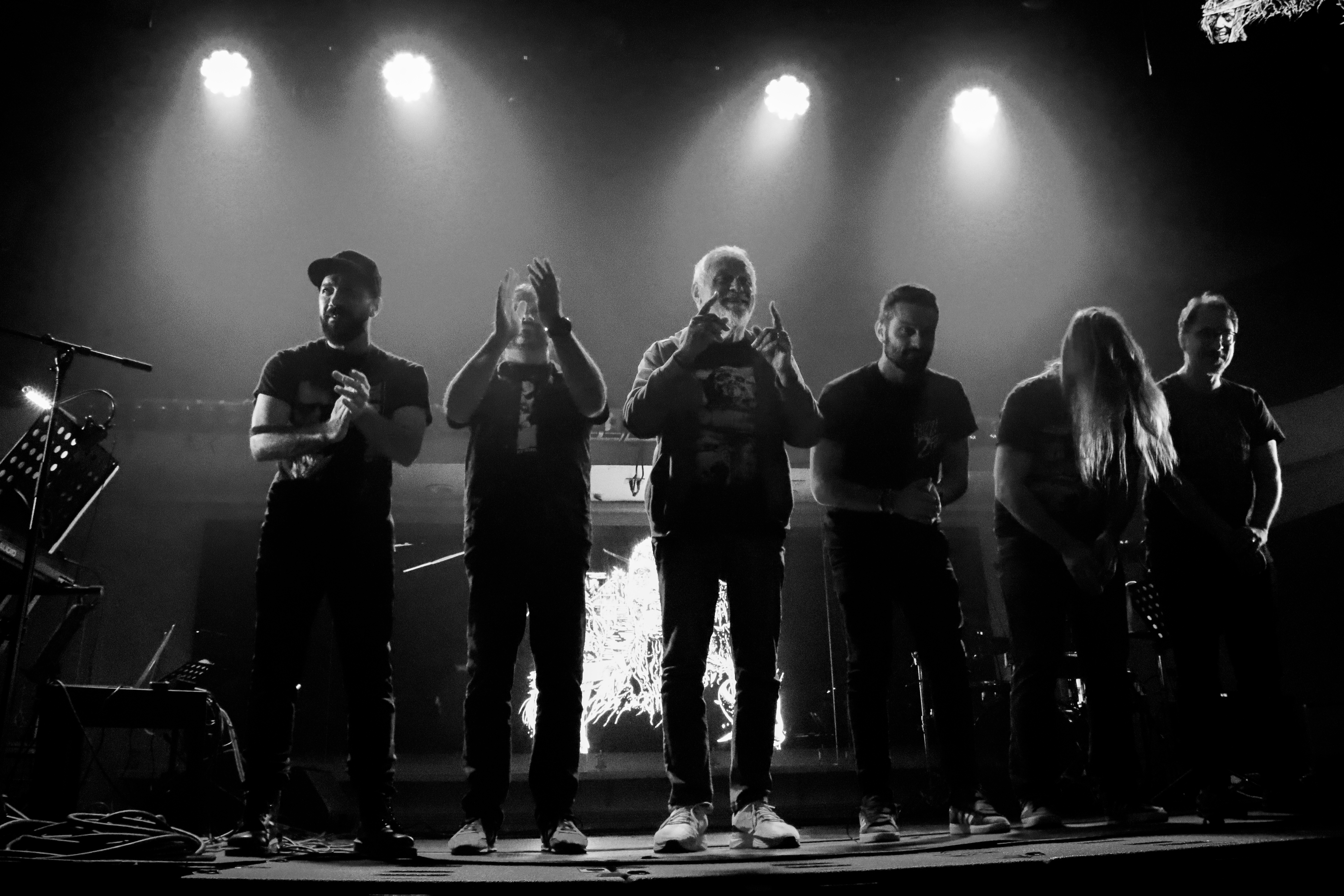
Categorized:Interviews

